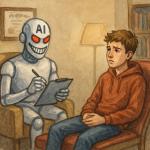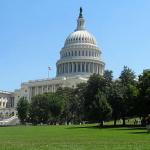AI is getting smarter.
mental health
Psychiatry was one of my early rotations as a third-year medical student just beginning clinical training. After years of exposure to science in the classroom and laboratories, its imprecision was unsettling.
National Public Radio (NPR) is concerned about a relatively small group of men who abstain from internet porn.
Two U.S.
The constant chirping sound in hospitals is the wide range of alarms notifying nurses and physicians of conditions requiring their attention.
“Since the eighth century A.D., the world’s number one low explosive (the kind you put in guns, as opposed to using it to blow things up) had been gunpowder. …
The world has a misinformation problem.
In response to claims by some critics of marijuana legalization that regular use might increase the risk of mental illness or suicide, my colleagues and I sought to d
It was a problem for years. First thing in the morning, I would shut off my phone alarm, open the Twitter app and begin scrolling through my timeline before reluctantly getting out of bed to be productive.
Mental health is a persistent problem, erupting into our consciousness when there is a mass shooting event or a homeless individual goes rogue. But for the most part, that is the tip of a much larger iceberg that affects many of us.












